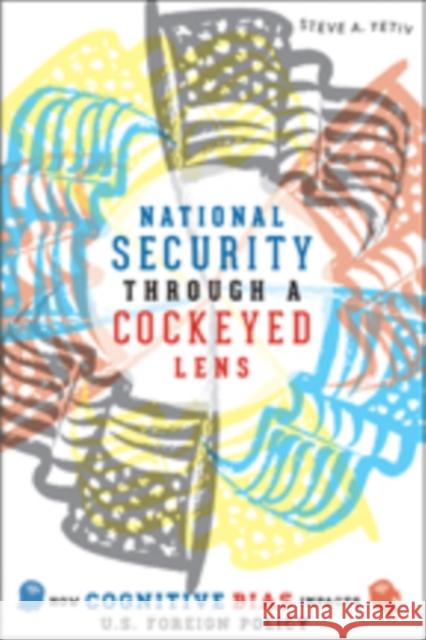National Security Through a Cockeyed Lens: How Cognitive Bias Impacts U.S. Foreign Policy » książka
National Security Through a Cockeyed Lens: How Cognitive Bias Impacts U.S. Foreign Policy
ISBN-13: 9781421411255 / Angielski / Miękka / 2013 / 168 str.
-How do mental errors or cognitive biases undermine good decision making?- This is the question Steve A. Yetiv takes up in his latest foreign policy study, National Security through a Cockeyed Lens.Yetiv draws on four decades of psychological, historical, and political science research on cognitive biases to illuminate some of the key pitfalls in our leaders' decision-making processes and some of the mental errors we make in perceiving ourselves and the world.Tracing five U.S. national security episodes--the 1979 Soviet invasion and occupation of Afghanistan; the Iran-Contra affair during the Reagan administration; the rise of al-Qaeda, leading to the 9/11 attacks; the 2003 U.S. invasion of Iraq; and the development of U.S. energy policy--Yetiv reveals how a dozen cognitive biases have been more influential in impacting U.S. national security than commonly believed or understood. Identifying a primary bias in each episode--disconnect of perception versus reality, tunnel vision (-focus feature-), distorted perception (-cockeyed lens-), overconfidence, and short-term thinking--Yetiv explains how each bias drove the decision-making process and what the outcomes were for the various actors. His concluding chapter examines a range of debiasing techniques, exploring how they can improve decision making.











